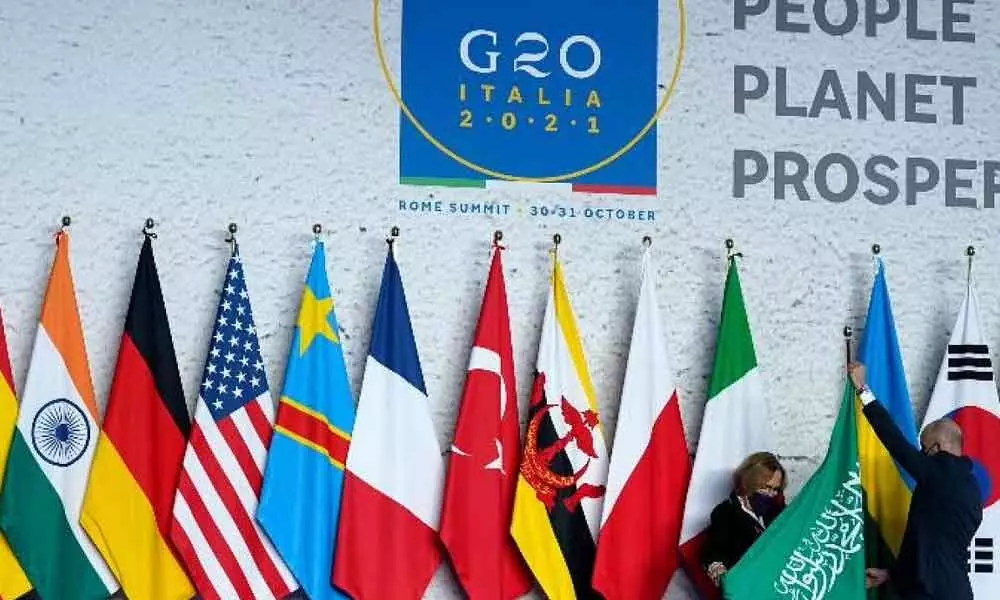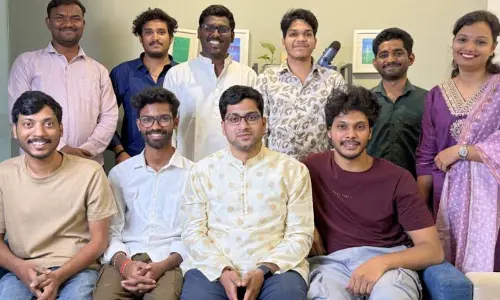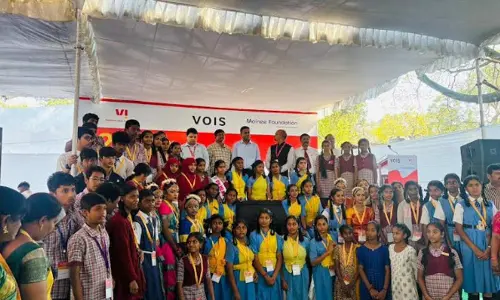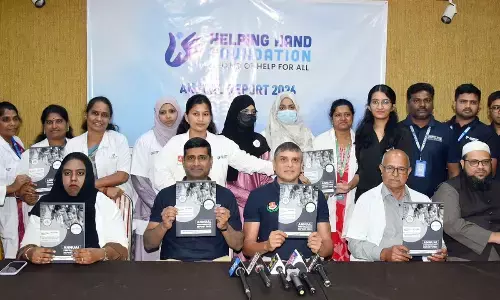G-20 calls for more Covid vaccines to poor nations

G-20 calls for more Covid vaccines to poor nations
Says gap is ‘morally unacceptable’
Rome: Italy's Premier Mario Draghi opened a conference of the world's powerhouse economies with a sharp call to pick up the pace in getting vaccines to poor countries, calling the gaping global Covid-19 vaccine gap "morally unacceptable."
Draghi, the host for the two-day Group of 20 summit in Rome, said on Saturday that only 3% of people in the world's poorest countries are vaccinated, while 70% in rich countries have had at least one shot. The call for more collective help for low-income countries sounded a theme running through the summit, which faces a global economy recovering at different speeds. Climate change, vaccines, the recovery, international taxation are all themes occupying leaders holding their first in-person summit since the pandemic took hold. Draghi welcomed the Group of 20 heads of state to Rome's Nuvola cloud-like convention center in the Fascist-era EUR neighborhood, which was sealed off from the rest of the capital. Saturday's opening session was focused on global health and the economy. Rich countries have used vaccines and stimulus spending to restart economic activity, leaving the risk that developing countries that account for much of global growth will remain behind due to low vaccinations and financing difficulties.
European Union leaders will meet off-site with African leaders in efforts to further support the continent's poorest economies in the wake of the Covid-19 pandemic.
French President Emmanuel Macron told reporters on Friday he expects the G-20 to confirm an additional USD100 billion to support Africa's economies.
The money would be provided via the reallocation of part of USD650 billion worth of special drawing rights, a foreign exchange tool used to help finance imports issued by the International Monetary Fund. The idea is for countries that don't need the help to reallocated their special drawing rights to those that do.
Participants were to include African Union President Felix Tshisekedi and Rwanda President Paul Kagame. The heads of state of South Africa and Senegal, Cyril Ramaphosa and Macky Sall, will take part via videoconference, the French presidency said.
Italy is hoping the G-20 will secure key commitments from countries representing 80% of the global economy — and responsible for around the same amount of global carbon emissions — ahead of the UN climate conference that begins Sunday in Glasgow, Scotland.
Most of the heads of state and government who are in Rome will head to Glasgow as soon as the G-20 is over. Russian President Vladimir Putin and Chinese leader Xi Jinping are participating remotely.
On the eve of the meeting, UN Secretary-General Antonio Guterres warned that the Glasgow meeting risked failure over the still-tepid commitments from big polluters, and challenged the G-20 leaders to overcome "dangerous levels of mistrust" among themselves and with developing nations.
"Let's be clear — there is a serious risk that Glasgow will not deliver,″ Guterres told reporters in Rome.
A recent UN environment report concluded that announcements by dozens of countries to aim for "net-zero" emissions by 2050 could, if fully implemented, limit a global temperature rise to 2.2 degrees Celsius (4 F).
That's closer but still above the less stringent target agreed in the Paris climate accord of keeping the temperature increase to well below 2 degrees Celsius (3.6 F) compared with pre-industrial times.










